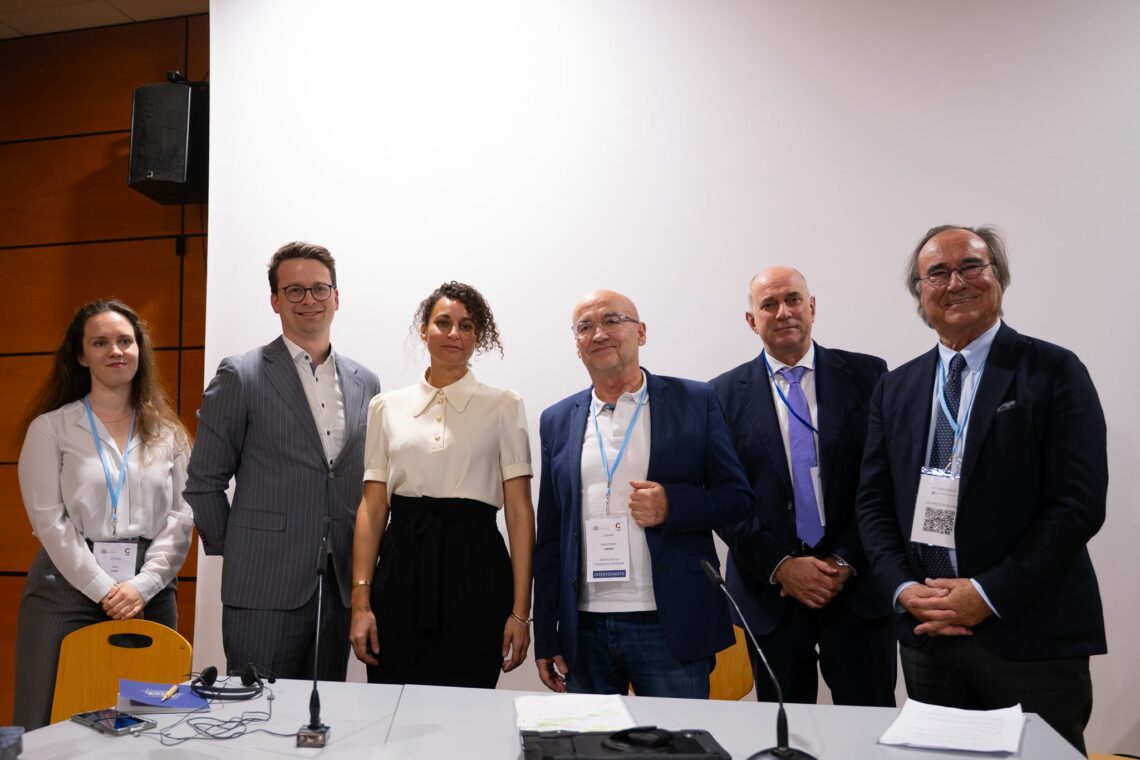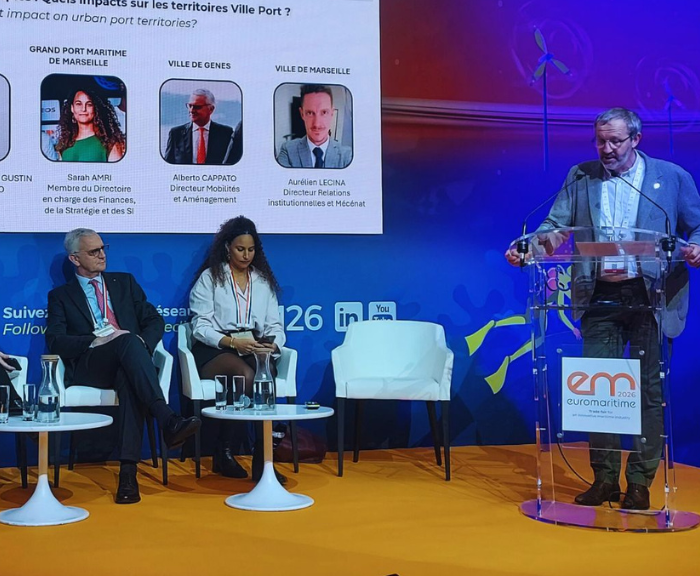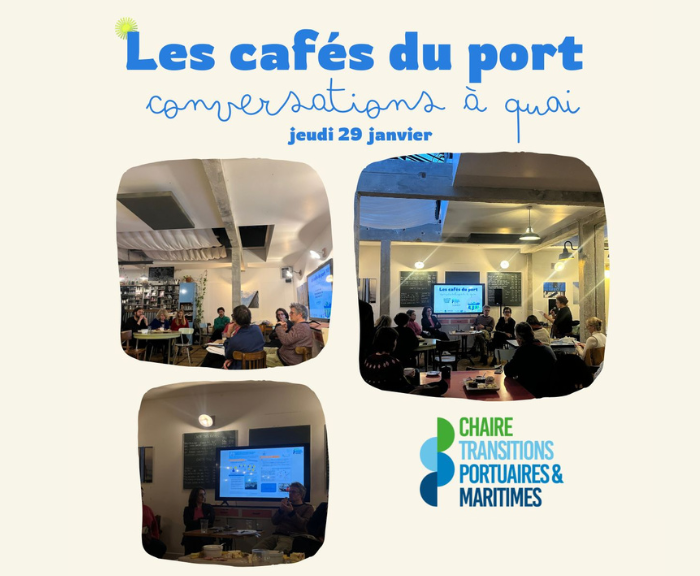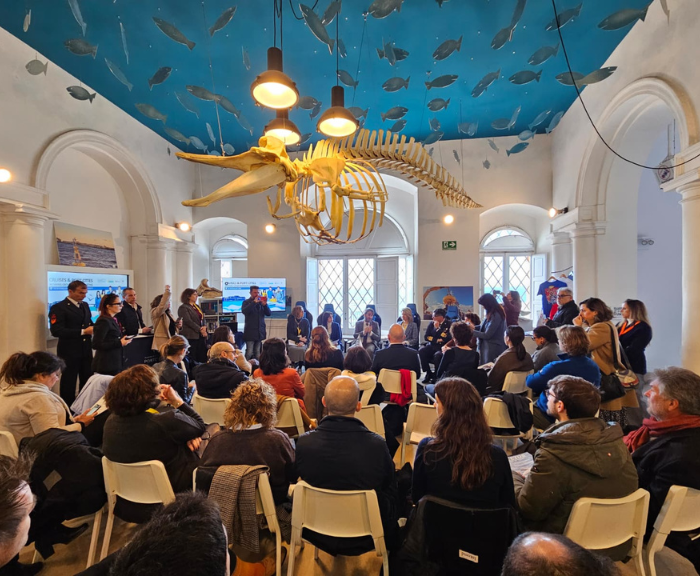Caya HEIN, project leader – Green Transition & Agenda 2030, participated in the Climate Chance Conference that took place in Marseille (France) on the 31st of March and 1st of April. On the second day of the conference, Caya Hein moderated the session titled “Ports and maritime infrastructure: How to adapt?”. The session included Francois Commheines, Mayor of Sète (France); Jean-Charles Lardic, Expert of AFNOR on Smart Sustainable Cities and Territories; Lennart Kinau, Head of Strategy and Communication at Hamburg Port Authority (Germany); Sarah Amri, Director of Finances at the Grand Port Maritime of Marseille-Fos (France); and Emmanuel Delachambre, vice-president in charge of the terminals at CMA CGM.
To start off the session, she presented the importance of climate change adaptation and resilience in the context of the Agenda 2030 by AIVP and its work, notably the European funded SAFARI project and the AIVP involvement in the Ocean Rise and Coastal Resilience Coalition to be launch during the next United Nations Ocean Conference. She also highlighted the various manners in which ports, port-cities, and their hinterlands will be impacted by climate change at +4C and the best practices of ports around the world to increase their resilience.
During the main portion of the session, Caya Hein lead the discussion between the different speakers as moderator. In response to questions posed by her, the workshop participants first presented their different entities’ solutions to climate change-related disruptions, which they all noted were already occurring on a continuous basis or during specific extreme weather events. They also outlined good resilience practices, which should help them to cope with even the +4 degrees scenario, which was the basis of discussions during the entire conference. They highlighted through their exchanges that resilience was not limited to extreme weather events, but also required adaptability to new economic, environmental and societal constraints. The speakers emphasized the need to anticipate regulations and standards that do not yet exist. Mr. Lardic provided a concluding statement in favor of a forward-looking vision of the social responsibility of ports and port cities. This proposal, which he intends to defend within the ISO committee responsible for drafting the standard, was adopted unanimously by a show of hands by the fifty or so participants attending the workshop.





